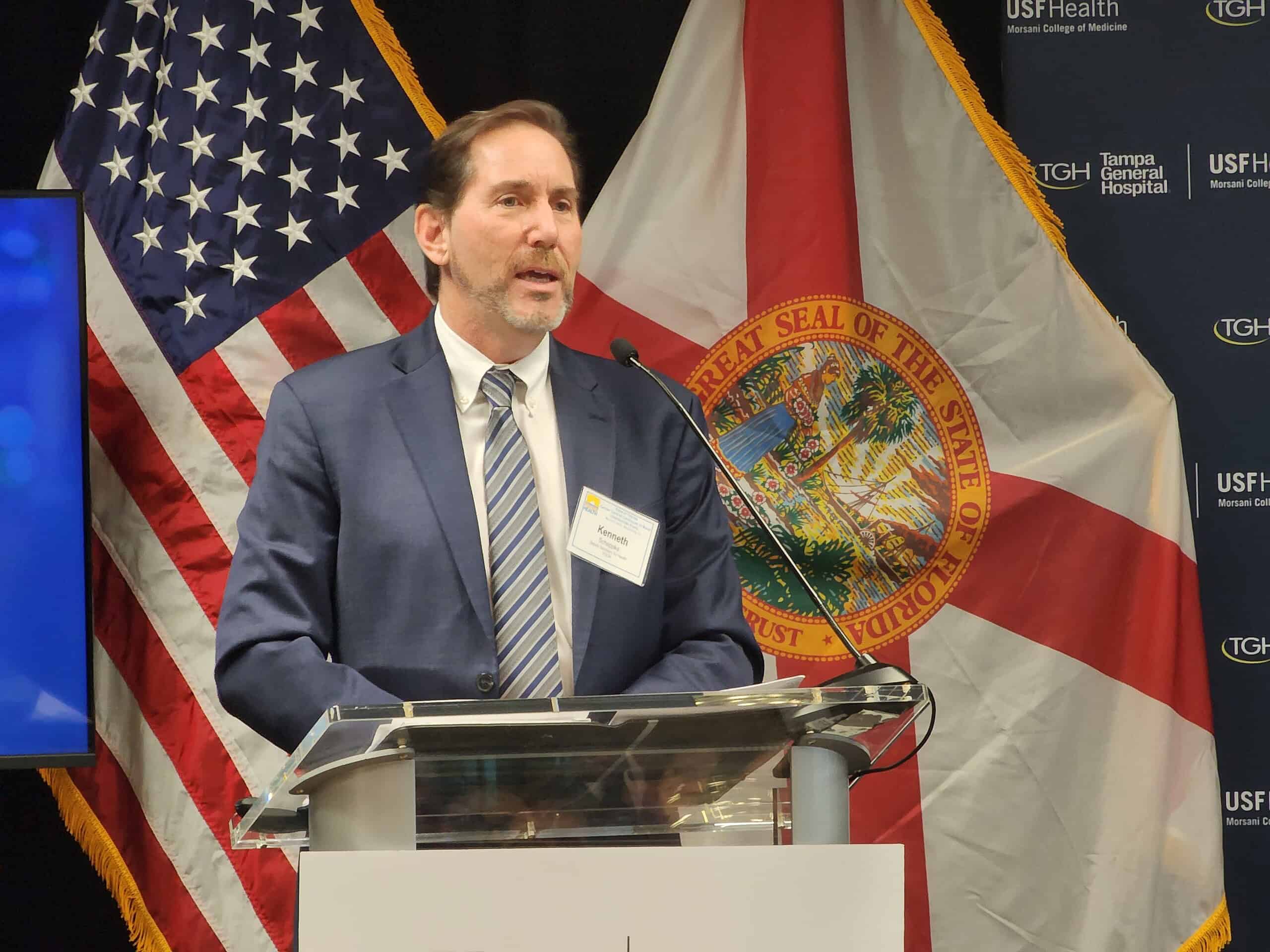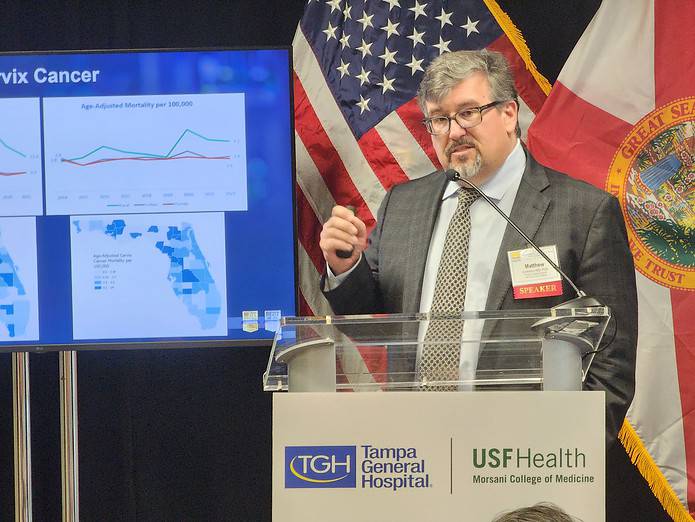Last month, the Tampa General Hospital Cancer Institute hosted a cancer symposium at TGH North. Health leaders met at the hospital’s Brooksville branch to discuss cancer control specifically regarding rural communities.
“We decided to do it [at TGH North] because this area is close to the rural community we wanted to serve, and we all want to improve cancer care and access to care,” stated Eduardo M. Sotomayor, MD, Vice President and Executive Director, Tampa General Hospital Cancer Institute.
Following speeches and presentations from various medical leaders, the gathering held multiple panels to discuss risk reduction, access to care, post-treatment, technological advancements, and artificial intelligence among other topics.
John Couris, President and CEO of the Florida Health Sciences Center, was pleased to have Tampa General pairing up with Moffitt Cancer Center and state universities for efforts like these that “transcend” the competitive nature of the health field. “Cancer patients to world-class care regardless of their ability to pay, their socioeconomic condition, or where they might live,” he said.
As noted by Dr. Matthew Anderson, MD and PhD, Professor of Obstetrics and Gynecology, Florida is deceptively agrarian, with over 85 percent of the state being listed as rural. The complication this poses is that cancer diagnosis and care may, unfortunately, begin when the disease is already in an advanced state.
This drastically reduces the options and chances such patients have of making a complete recovery. Keynote speaker and Deputy Secretary for Health at the Florida Department of Health, Dr. Kenneth Scheppke, emphasized the importance of communication and access to care.
During his years in the emergency medical department, Dr. Scheppke has observed that the patients who are diagnosed with cancer are doing so “late, it has not been picked up, and you know it is not going to be a good outcome.”
Dr. Scheppke looked around the room and reminded the audience of medical professionals of the sobering truth. A staggering one in three people will be diagnosed with cancer, and one in six deaths will result from this disease every year unless things change.
Per 100,000 Floridians, stated Dr. Anderson, age-adjusted deaths from all cancers were significantly higher among those in rural areas (~190) versus the state average (~139). Mortality from cervical cancer among the same-sized group is also higher in the rural population (4.1) versus their urban counterparts (2.8).
As noted by Couris, they have been making strides in this area, as nearly 25 percent of the work that TGH and USF do together involves medication. “I am very proud of that, because that is an indication, to me, that we are reaching out and making a difference in the most needy and vulnerable in our population.”
The state now spends $127 million on NCI (National Cancer Institute) systems every year – more than double what it was 10 years ago. Fortunately for tens of millions of citizens, Florida is in the top five for spending on cancer care (over $300 million).
Over the same ten-year span, the Florida Department of Health has provided mammography and cervical cancer screenings to more than 100,000 women across the state. These initiatives were spurred on by the tragic breast cancer diagnosis of Governor Ron DeSantis’ wife, Casey, who is now cancer-free.
Her condition helps to drive the point home even further that a patient is not just a “nameless, faceless person […] it is all of us.” Dr. Scheppke continued. “If you are in a position to improve health care, you should selfishly improve it as best as you can, because you personally are going to need this either for yourself or one of your loved ones.”
When it comes to lung cancer in particular, there have been several developments on that front. Youth awareness seminars, declining smoking rates, and new technologies have all contributed to more promising lung cancer statistics.
In late February, TGH North hosted anti-vaping seminars with the Jersey College of Nursing as well as the Thoracic Oncology Mobile Experience, which demonstrated the efficacy of bleeding-edge technologies such as Ion and Da Vinci in identifying and treating cancers. The trick will be to make sure that such treatments are provided in a timely manner.


